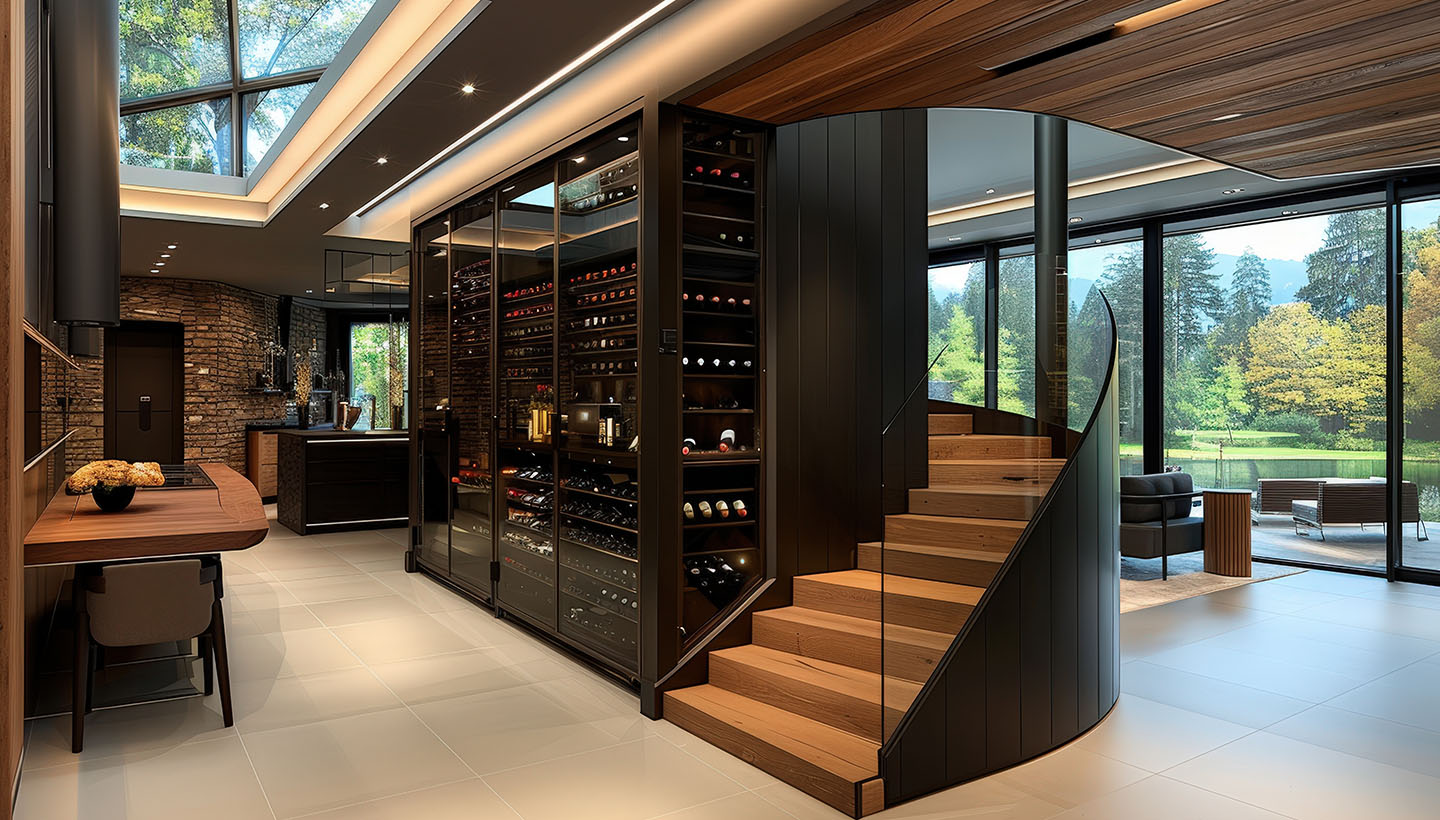
Inspecting & Reporting Uncommon Home Features
Ever come across something a little unique on the job? Or even a special feature that you weren’t prepared to inspect, like a wine cellar or a fancy new security system? The good news is, you’re not required to inspect most areas like this. But it could prove useful to have some special knowledge. Let’s walk through inspecting and reporting uncommon home features, so you can be prepared to face anything on the job!
What a Home Inspector IS Required to Inspect
Before we dive in, keep in mind that there are certain things you’re required to inspect. A standard home inspection typically covers the main components of a home’s condition, such as:
- Structural elements like the foundation and framing
- Exterior features including siding, doors, and windows
- Plumbing, electrical, and HVAC systems
- Interior elements such as walls, ceilings, and floors
- Basements, crawlspaces, and any visible insulation
These areas all fall under basic inspections to ensure the home is safe and functioning properly. However, a few unique features may fall outside these requirements.
What a Home Inspector Is NOT Required to Inspect
Of course, there are also things you shouldn’t do as a home inspector. This can be because you need specialized knowledge, specific equipment, or the inspection itself could put you in danger. For example:
- Swimming pools, spas, and hot tubs
- Septic systems and wells
- Security systems and intercoms
- Solar power systems
- Specialized equipment like wine cellars and smart home systems
So, why are these the areas we’re choosing to cover today? Though not required, having a little extra awareness and special knowledge can help your clients make the safest and most informed decisions. Plus, you never know — some of these rare areas could become the norm.
Types of Uncommon Home Features
Every house is different, so “uncommon” can be a pretty subjective term when it comes to home features you might come across on the job. Still, here are a few that you’re more likely to find, and some tips for how to inspect and report on them. (Ahem — the More-Common Uncommon Features, if you will.)
Keep in mind: You are not required to inspect any of the following areas. It’s always a good idea to include a clause in your contract stating what you can and cannot fully inspect, so that you’re iron-clad against any potential legal cases. We know, we know. But now that that’s out of the way…
Smart Home Technology
Smart home devices (“Hi, Alexa!”) have become more common in modern homes. These devices can include thermostats, lighting, security cameras, and so much more! For this example, we’re going to cover smart security systems, and specifically how to access Ring cameras left by former owners/tenants.
Inspecting Tips: Since security systems like these are more often considered appliances than structural home features, you would be fine to overlook this part of an inspection. But, if faced with a leftover security device that the prospective buyers are interested in keeping, here’s a tip you could include in your report.
Reporting Tips: No need to report on much more than the presence of the device here, and its condition (if there are any obvious flaws, for example). To go the extra mile, you can include these tips on how a homebuyer can reactivate a security device for their future usage.
Solar Panels & Other Green Technology
Nowadays, there are tons of different types of green homes. With them come different kinds of inspections! For simplicity, we’ll cover the most popular feature you’ll come across on the job: solar panels.
The condition of solar panels depends on several factors, including installation, quality, and age. These are things you’re more likely to notice if you already have specialized knowledge. Here are some things you can look for regardless of your experience:
- Inspecting Tips: Look out for physical flaws like cracked glass or loose wiring, check all roof penetration points, and note any signs of water damage. You’re not required to evaluate the system’s electrical output, so if you suspect there are any issues in that area, it’s a good idea to recommend a specialist.
- Reporting Tips: If anything seems out of place, you can advise clients to have a qualified solar technician conduct a more detailed inspection.
Wine Cellars
Wine cellars are an amazing feature to discover in a home, because their conditions are very specific. In fact, one of the most common issues you’ll find in a wine cellar is mold.
- Inspecting Tips: The easiest way to start is to check for general cleanliness. See that the shelves and bottles are mostly clean, and there are no dark corners with trapped moisture. This is where a moisture meter will come in handy, and can probably tell you right away if there are issues with hidden leaks.
You can also smell for any foul, musty, or other unpleasant odors. You may not be able to ensure temperature consistency, but you can check that the cellar is about 55 degrees F. There should be light ventilation, but not enough to dramatically alter the temperatures.
- Reporting Tips: If you come across mold or any issues with moisture, note this in your report. If you aren’t certified to inspect mold and have it tested, recommend a specialist!
If you’re interested in learning more about inspecting for mold, peep our certifications!
Tips For Successfully Reporting an Uncommon Feature
The details you include in your report can make or break a potential buyer’s decision. For this reason, it’s important to keep a level head when you write your reports. There’s no need to be overly alarmist, but you also don’t want to let a potential disaster slide by without a mention.
That’s why when it comes to uncommon features, the most helpful thing you can do is recommend a specialist when something seems really out of whack. Here are three simple steps you can take to report uncommon features:
- Document the feature.
- Note any visible damage.
- Advise clients to seek a specialist when necessary.
Useful Home Inspection Tools
Having the right tools can make all the difference when encountering uncommon features, or even in your day-to-day work. Luckily, you can find most of these in our shop. Here are a few we recommend:
- Thermal imaging cameras to help detect moisture issues or improper insulation.
- Moisture meters are useful for checking for hidden leaks.
- Electrical testers can verify the basic condition of electrical wiring (although more detailed testing should be left to a specialist).
When to Flag Home Inspection Issues For Further Review
Sometimes, you’ll encounter a feature that clearly needs a more in-depth assessment. Here’s when to suggest further review:
- If there’s visible damage (e.g., cracked solar panels, mold growth in wine cellars)
- When a system appears non-functional (e.g., smart home devices that aren’t responding)
- If there’s an unusual installation or DIY modification that doesn’t meet standard practices
By knowing what to look for and how to communicate findings, you can provide added value to your clients without overstepping the boundaries of a standard home inspection.
With AHIT, You Can Be Prepared For Anything
As an AHIT-Certified Inspector, you have a leg up in the industry. Though you aren’t required to check specialized or rare features of a home, you have an eye that homebuyers will highly value, because you’ve trained with the best of the best. If you’re interested in adding extra certifications to your toolbelt for a little extra oomph (and probably some extra cash!), you know where to find us.




